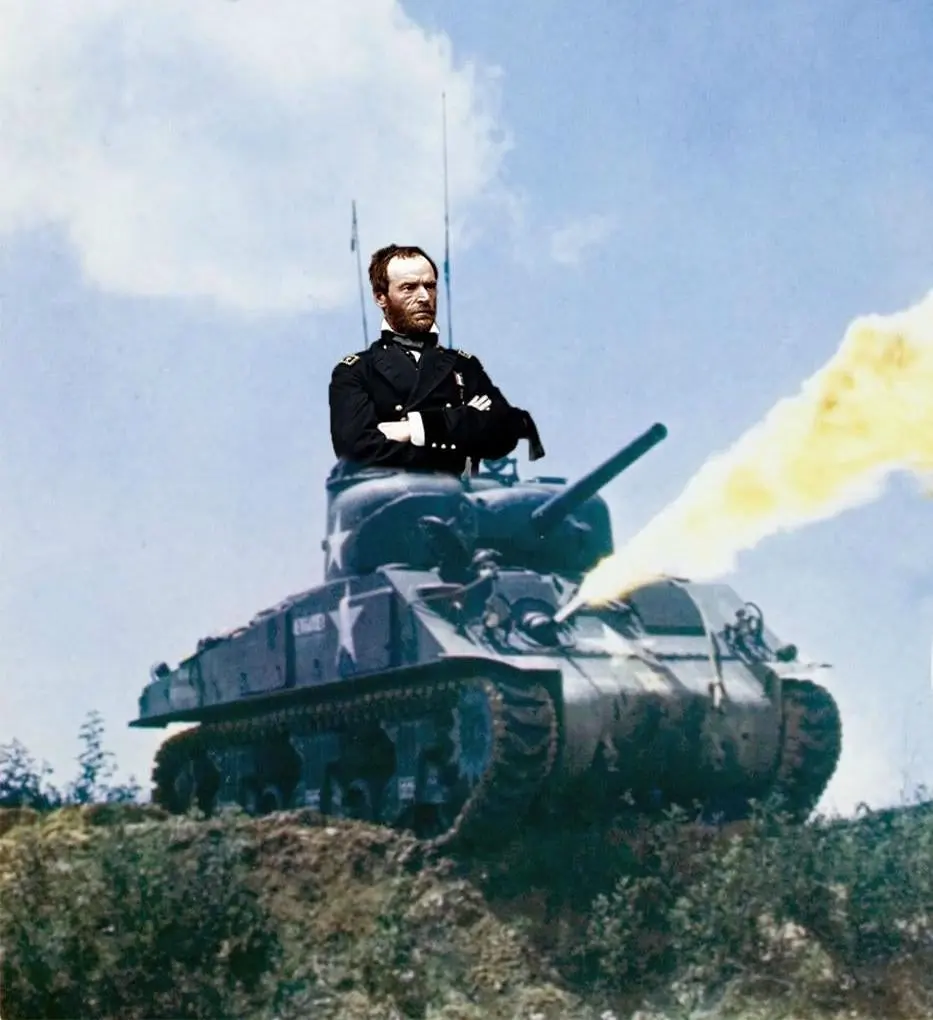The American Revolution was a challenge to unchecked monarchial/imperial power in order to install representative government.
Mohawk teacher should understand that.
I agree entirely and have a positive view of the American Revolution, but it’s also fair to see it as somewhat self-interested. If someone doesn’t take a strong side looking at the American Revolution, I generally don’t think too poorly of them. If someone doesn’t take a strong side looking at the US Civil War, though? Nah, I don’t deal with people like that. We’re all Union boys and girls for those four short years. 40 Acres and a Mule!
Now, I’m not from the States so I’m not as invested in the first place but is it okay in general to be somewhat lukewarm about the American Civil War in terms of its societal effectiveness? While the slavers got beaten up very effectively (and rightly so), the aftermath was mired in compromise to such a large degree that slavery still isn’t banned in the States and the underlying racism is still a major issue today.
Is that valid criticism or should the postbellum be considered strictly separate from the Civil War? I’m genuinely curious.
(And I just realized that you argue against not taking a strong side rather than not having strong feelings. My bad.)
Oh yeah, we all mourn in this community that Reconstruction didn’t do what it was supposed to - destroying slavery and racism in the South, and in failing to do so, allowed it to re-establish itself as power over the entire country again. But the Civil War itself? “Anti-democratic racist slavers vs. Flawed democracy coalition which eventually accedes to more racially positive outlook” shouldn’t be a hard choice for anyone.
I agree entirely and have a positive view of the American Revolution
Gerald Horne’s Counterrevolution of 1776 fixed that for me. It’s available on Anna’s Archive if you wanna give it a read.
I’m plenty well-read on the American Revolution, thank you, I don’t need to chase down dipshit mythology about how the American Revolution was secretly a war over slavery.
You’re not very well read then. While it wasn’t a driver for northern colonies. It was a major concern for the Southern colonies. There wasn’t anything secret about it, they were even given assurances that slavery wouldn’t deterred by the new government.
This may come as a shock, but the northern colonies assuring the South that slavery wasn’t going to be abolished despite fears from the South that it would be by the northern colonies isn’t exactly proof that the war between the colonies and Great Britain was about slavery. In fact, one might go so far as to say it’s fucking irrelevant to the causes and reasons for the revolution itself. Hell, the Americans abolished the slave trade before the Brits did.
Wow that’s a special kind of denial.
You caught me, it was the holsum desire of the Brits to abolish slavery, which they profited from massively, which drove the American Revolution, please ignore all evidence to the contrary.
It was also about slavery, at least partially. Abolitionism in the Empire was on the rise, and the colonies were afraid that the crown would abolish it empire-wide. Back in england they had ruled in 1772 that English law did not recognize slavery, so the threat to the american slave owners was very real. The so-called representative government they created was made to continue slavery and oppose abolitionism.
Back in england they had ruled in 1772 that English law did not recognize slavery, so the threat to the american slave owners was very real.
Not really. Slavery had never been well-established in England, and the British were still massively invested in slavery in all of their colonies and showed no appetite for stopping. There was no immediate risk of abolition and very little of the writing from Southerners in the American Revolution is concerned with the prospect of abolitionism from the British Empire. When the Brits took Martinique from the French Republic, which had at that time abolished slavery, they went out of their way to ensure that slaves did not receive this promised abolition, neither from the Republic nor in service against French forces.
For that matter, abolitionism in the South itself was on the rise, until the 1790s and the invention of the cotton gin, which gave slavery an order of magnitude extra economic incentive.
Heh, yes but… it was also a rebellion of wealthy landowners who didn’t want to pay their taxes.
Particularly taxes to pay for the troops that would protect them after the war they started that basically bankrupted England. I think they were closer to modern day Libertarians than anything else.
Still pleased with the result, though. Just, learning about the revolution beyond the Boston tea party, the Boston Massacre, and the slave-owning Thomas Jefferson waxing philosophical about the merits and necessity of a free society, led me to think of them through a modern perspective (how I might view a similar colony now) and that I probably would have been on the Crown’s side.
“We don’t want to pay taxes if we don’t get a say in governance” shouldn’t really be all that controversial. Even the British acknowledged the absurdity of the situation, though the opinion in the British government was that the colonies should be content with ‘virtual representation’.
And to continue colonizing westwards
Which I find rather cringe
Brits: “Fuck’s sake stop starting expensive wars”
American colonists: “F R E E L A N D”
Funny how land is ‘free’ when they aren’t the ones paying for it, or the ones dispossessed of it.
tf…




